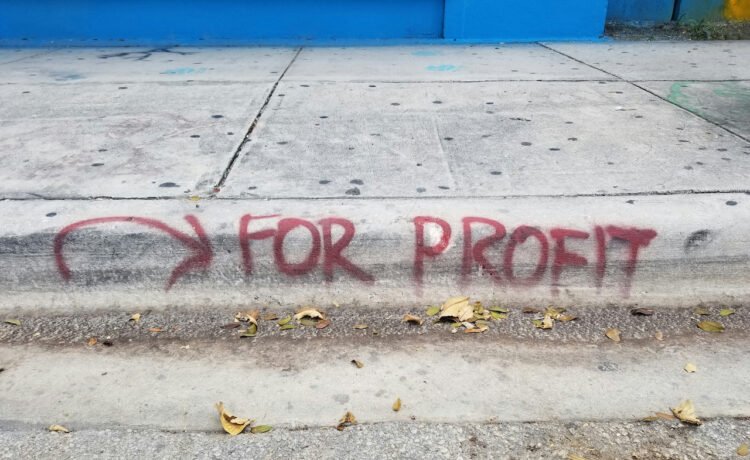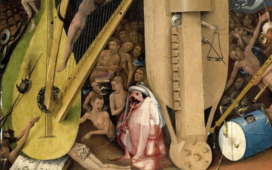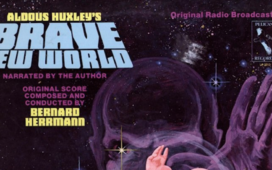Money likes to go where money already resides. This truism is valid in the cultural sector as well, which has seen a lot of its funding opportunities disappear since 2008. And as funding disappears from the field, so do a lot of people lose their opportunity to participate, both as audience members and as cultural practitioners.
Is culture livable?
Cultural work is, indeed, labor and for it to thrive, it needs to be treated as such. Without this condition, arts, publishing, and even academia are being increasingly reserved for those who can afford to not make a living from their work. It is particularly bitter that now, when ethnic, sexual, and social minorities, and women have started to get leading roles in our conventionally white cis-he-male-dominated fields, money practically disappears from this area, leaving a diverse, competent, and dedicated cohort of the intelligentsia to wipe their tears with their project papers and dishes with the PhD certificates.
Meaning-making had long been the pastime of the leisurely classes again, and with funding disappearing from the field, we are headed in this direction once again.
The tragedy of cultural labour in Slovakia
For instance, Slovakia’s culture chief Martina Šimkovičová promotes the idea that ‘Culture should be Slovak and no other’. For her, this means the exclusion of LGBTQIA+ organizations, an all-out attack on independent arts and media, deposing directors of emblematic art institutions because of their political views… you know, a classic case of culture wars.
This attack is far from unprecedented even in Slovakia’s immediate region: Hungary and Serbia have obliterated funding for independent culture and weaponized funding against dissent in arts and media for over a decade; Poland had a right-wing government who attempted something in a similar vein until 2023, and there are strong contenders all around Europe who dream of a chance at such a takeover. Romania narrowly avoided electing a far-right football hooligan just a few weeks ago, and coming in second will hardly stop George Simion’s AUR party from dominating internal affairs.
Conservatives and the far-right seem to have recognized that culture is where worldviews are formed, and they are doing their worst to restrict what actually reaches people.
Culture fights back
But independent culture does fight back.
In Slovakia, for instance, a nationwide initiative started to organize the cultural community under the umbrella of Open Culture. It brought together 400 institutions and almost 2,000 artists across the country and gathered 10,000 people for a public protest in Bratislava last year.
Fighting against the political pressure on culture is crucial, especially since long-standing methods of evading such funding cuts have become more difficult now that formerly influential funding partners, such as USAID, are no longer reliable partners, having slashed more than 80% of its projects. You know, the chainsaw of bureaucracy.
Let’s talk about USAID
USAID was set up in the 1960s to manage humanitarian aid programs on behalf of the US Government and has a base in more than 60 countries. Since the 1960s, it has been a lifeline across many fields, ranging from health care to publishing, to advocacy and human rights organizations to education. It had provided not only millions of people with essential services but a lot of soft power to the US, which the Trump administration neither seems to understand nor care about. The influence of these rash cuts is so great that, according to the WHO, since the funding was cut, Afghanistan is drifting into an escalating humanitarian crisis with “outbreaks of diseases such as measles, malaria, and polio,” as reported by the Guardian.
Olena Leptuha, the head of the Kharkiv Crisis Info Center in Ukraine, says that ‘Especially for local or hyperlocal media, the suspension of USAID funding will cause an information desert,’
The Info center was founded after Russia invaded Crimea in 2014 and is, amongst others, an editorial office that produces news and multimedia to regions that would be otherwise incredibly difficult to reach. Olena Leptuha notes that the withdrawal is an attack on freedom of speech and warns that “people exhausted by the war will receive less information, and it will be easier to manipulate them.’
Many colleagues of mine who are working in the cultural sector around the world have already lost their livelihoods or are at risk of losing theirs and cannot provide essential services and cultural access to millions of people they have served before. USAID funding cuts have revealed how heavily news outlets, humanitarian aid, and culture programs are dependent on foreign help, which also makes them very vulnerable.
So how can we strengthen cultural institutions, and why is it still so difficult to get state support?
We have invited 4 guests to talk about the subject:
Guests
György Szabó is trained as an economist. His work focused on innovation in the performing arts. One of his main aims was to promote the recognition of contemporary performing arts among a wide section of society. He was the founder of Workshop Foundation and Trafó House.
Maximilian Lehner is the Managing Director of EUROZINE, he is a curator, critic, and art historian exploring non-normative temporalities through collaborative formats.
He’s part of Funduk, bad curating inc., and Anomalies. His work spans Europe, with past roles including teaching at KU Linz and publishing in Artforum, Kajet, and more.
Maria Popovic alias Zmaja is the Program Director at Magnet Association and manages several Creative Europe projects through the Student Cultural Centre Novi Sad and Foundation EXIT. Since 2000, she has worked as a project manager, trainer, evaluator, and consultant for various EU programs, also teaching and assessing for multiple national agencies and the European Commission.
Tarun Kade is a dramaturge at Wiener Festwochen, previously active at Thalia Theater, Theater Bremen, and Münchner Kammerspiele. He co-founded modesofoperation.com and works closely with directors like Toshiki Okada and Leonie Böhm.
For this Episode we are hosted by the library of the academy of fine arts in Vienna, a big thank you to them!
Creative team
Réka Kinga Papp anchor
Daniela Univazo writer-editor
Merve Akyel art director, Eurozine
Szilvia Pintér producer
Julia Sobota captions and translations
Zsófia Gabriella Papp digital producer
Management
Priyanka Hutschenreiter project manager
Judit Csikós head of finance
Réka Kinga Papp editor-in-chief
Csilla Nagyné Kardos office administration
Video Crew: Okto TV
Senad Hergić, producer
Leah Hochedlinger, video recording
Marlena Stolze, video recording
Clemens Schmiedbauer, video recording
Richard Brusek, sound recording
Postproduction
Nóra Ruszkai video editor
István Nagy lead video editor
Milán Golovics dialogue editor
Dániel Nagy dialogue editor
Art
Victor Maria Lima animation
Crypt-of-Insomnia theme music
Disclosure
This talk show is a Display Europe production: a ground-breaking media platform anchored in public values.

This programme is co-funded by the European Commission and the European Cultural Foundation.
Importantly, the views and opinions expressed here are those of the authors and speakers only and do not necessarily reflect those of the European Union or the European Education and Culture Executive Agency (EACEA). Neither the European Union nor the EACEA can be held responsible for them.
















